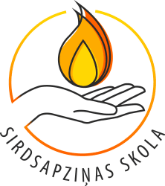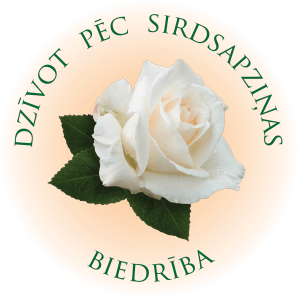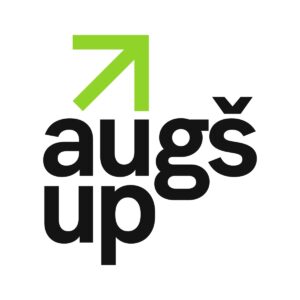About us
I. Conscience school establishment motives
- Children and teenagers knowledge level and behavior deterioration.
- The educational system failor to develop spirituality and intellect of learners in a balanced way.
- Society’s degradation and abandonment of God, as well as a low moral standard, have led to the following consequences:
- Mostly employees do not consider employers’ tax fraud or envelope wage practice and corruption as an offence against the law.
- A significant part of the society is indifferent to tax or other financial scams.
- A significant part of society is indifferent to misconduct and low moral standards of civil servants and politicians.
- The increase in the number of sick leaves indicates not only on the unhealthy society, but also on the use them, just not to work and live at the expense of the state – that is to say, state scrounging.
- The willingness of unemployed to use “national paid leave” is not considered as a crime.
- Different money scams schemes to enhance personal well-being are perceived as smart people actions, but not as something criminal.
- Lies, servility, duplicity and guile are accepted at all levels.
- Marriage violations, same-sex, bisexual and group sexual relationships are no longer anything wrong or special.
A large number of society’s degradation signs could be listed, which, in general, suggest only a low level of public morale, which is the result of a long-term focus on the development of intellect, leaving spirituality neglected and God abandoning.
Therefore, the Association “To live by Conscience” in cooperation with the establishment “Socrates Folk School” would like to create a model for the educational institution with new content that will ensure a balanced development of spirituality and intellect,as well as, a new generation upbringing in accordance with the Divine moral laws, which will be the basis for the development of a progressive community.
II. Conscience school mission
To develop a general education institution from pre-school to higher education with a new content that will ensure a balanced development of spirituality, intellect, physical culture and work integrity, as well as, a new generation upbringing in accordance with the Divine moral laws, which will be the basis for the development of a progressive community and a model for the education system improvement.
III. Conscience school slogan
Let’s live according to Conscience!
IV. Conscience school vision
Conscientious School is a model of an educational institution with new content that ensures a balanced development of spirituality, intellect, physical and work integrity at all age groups, cultivating students to live according to Conscience, which in the future will contribute to the development of Latvia as a whole in all areas.
Conscientious school takes part in the development of pre-school, primary, secondary, and higher professional education systems and lifelong learning in Latvia.
Conscience school educates 11 target groups:
- Children aged 0-3;
- Children aged 3-6;
- Children aged 6-9;
- Children aged 9-12;
- Teenagers aged 12-16;
- Teenagers aged 16-18;
- Young people aged 18-30;
- Conscience Ambassadors;
- New mothers and dads waiting for a baby;
- Parents;
- Educational institutions teachers.
V. Conscience school goals
- Change the perception of the younger generation about the need for education, ensuring that the a pupil comes to school with pleasure and perceives its values in his or her future life.
- Bring up a new generation of people with a high level of consciousness, whose life principle will be the observance of human values and Divine laws in everyday situations, fulfilling duties with sence of high responsibility and living in accordance with conscience.
- Establish an educational institution as a social enterprise in which the content of education includes the balanced development of children’s and youth’s intellectual, spiritual, physical and work integrity.
- Advance children and young people consciousness level by developing their spirituality and engaging them in charity and social entrepreneurship activities.
- Share obtained experience and methodology with educators from other educational institutions.
- Integrate children with special needs (disabled and children with intellectual disabilities) among healthy children.
VI. Conscience school values
- Truth – Thoughts coincide with words, giving up falsehood, divinity, and deceit.
- Virtue – actions coincide with words that are true and do not harm anyone.
- Peace – inner peace, minimizing desires to a minimum and getting rid of negative qualities and stress.
- Love – love all living creatures unconditionally.
- Nonviolence – abandonment of violence in speech and thoughts.
VII. Conscience school principles
Conscience school principles correspond to the principles of “Live by Conscience” association, i.e.,
- Truth, honesty, justice, everywhere and always.
- The attitude towards other people and events is tolerant, kindhearted with the ability to distinguish good from evil, truth from lies, a lasting value from a temporary grace or profit.
- Personal responsibility for thoughts, words and actions and their consequences for students, parents, colleagues, society, state and God.
- Faith. Belief in God or the Supreme Law; faith for the good; faith in the value and importance of work for the benefit of Latvia and mankind.
- Love towards everybody and everything: family, people, humanity, nature, planet and all living creatures on it.
- Unselfishness. Work for the benefit of the Latvian state and society without expecting any remuneration.
- Love towards work and diligence. Be delighted for the achievements of ther people just like yours. So, that everyone will benefit.
- Mutual trust, openness, cooperation and assistance.
- Individual self-development process: an attempt to expand horizons and develop spiritually; controling feelings, thoughts and actions; recognising and correcting mistakes; trying to transform bad qualities into good ones.
- Peace. Conscience school is about brotherhood and peaceful coexistence of all people and nations without any aggression or violence. In interpersonal relationships support a peaceful, respectful attitude towards any event, avoiding condemnation. Solving problems with tolerance, understanding, love and forgiveness.
- Readiness to provide help others, serving people, the state and God.
VIII. Educational programmes’ content basic principles
- The development of balanced spirituality and intellect, emphasizing students’ overall improvement, as well as the advanement of their talents, competences, physical and work integrity.
- Montessori pedagogy approach – each student deserves an individually tailored approach – mastering every subject at a pace appropriate for his or her uniqueness, using materials and equipment provided by Montessori pedagogy, as well as strengthening knowledge by the method – a child learns from a child.
- Development in working groups – students are divided into working groups according to the knowledge level.
- Development appropriate to individuality – in any subject learners have different achievements – students, who succeed, proceed a step further learning in depth certain topics; those who do not, master them at an appropriate pace suited especially for their individuality.
- There is no demanding assessment nor competition among students, since students’ knowledge is not compared with each other, but teachers just observe the progress of students’ development, which is fixed in the Student Development Passports.
- All subjects are favouvorite ones since formal and boring teaching is avoided, so that the child can learn every subject with pleasure, understanding the importance of mastering a material for the future life.
- Development of spirituality – ethical, moral upbringing and education of students on the basis of faith takes place by explaining the unity of different religions and doctrines, by developing the understanding of the holy world and faith in God.
- Getting the best experience – the programs’ content will be refined with the best experience of Waldorf pedagogy, the Latvian folk wisdom, new technologies and foreign languages acquisition in cooperation with the most advanced educational institutions abroad.
- Healthy food is cooked together with students, as well as parents are also trained how to cook healthy and tasty food.
- Healthy physical activities engage and encourage students to enjoy various types of sports, developing all-muscle groups in the fresh air and understanding the importance of being delighteg by others success.
- Work ethics development by doing all the work necessary to maintain Conscience school together and developing social entrepreneurship, as well as collaborating with Conscience school partners.
- The identification and development of talents, competencies, skills and capabilities is integrated into curricular, social entrepreneurship activities, collaborative projects with other specialized education and development institutions, as well as within charity projects.
- There is no homework – the theory is practiced during the classes, which is later implemented into real life by participating in social enterpreneurship activities.
IX. Learners’ development assessment
In order to determine the dynamics of learners development progress, a Development Passport will be introduced for each student, from pre-school to high school, where will shown the following:
- student’s talents and their development dynamics;
- competences, skills, abilities and their development dynamics;
- attitude towards studies and its development dynamics;
- attitude towards work and its development dynamics;
- attitude towards peers / adults and development dynamics;
- tasks’ execution quality and its development dynamics;
- obtained knowledge and its development dynamics;
- the level of spirituality, the practice of human values, the liberation from negative qualities and positive qualities’ development dynamics.
X. Teachers’ work quality criteria
- Learners’ love and discipline.
- Collaboration with parents and colleagues.
- Learners’development progress indicators.






